Ketogenic Dieting 101: Complete Beginner’s Guide
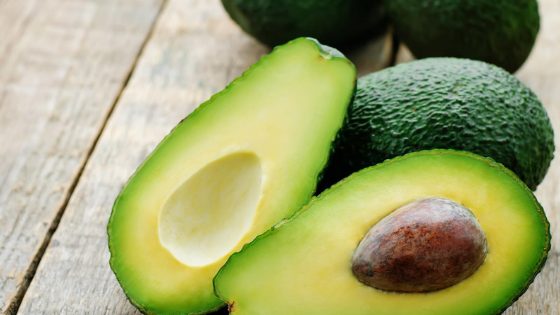
The ketogenic (keto) diet is rapidly growing in popularity within the medical community and among fitness enthusiasts, largely due to the compelling body of clinical evidence backing its health benefits.1 Thus far, research suggests that the keto diet can help:
- Enhance cognitive processes
- Reduce inflammation
- Improve cardiovascular function
- Support healthy blood sugar balance
- Assist weight loss
- Increase longevity
You may be aware that the keto diet is a low-carbohydrate regimen, but there is much more to learn if you want to properly follow it. This article will help you get a clearer sense of what the keto diet is, how it works physiologically, its multitude of benefits, as well as which foods and dietary supplements are keto-friendly.
“What is the ketogenic diet?”
The ketogenic diet is a very-low-carbohydrate diet that prioritizes consumption of healthy fats and quality proteins. Physiologically speaking, proteins and fats are essential macronutrients (meaning you must eat them for survival); carbohydrates are technically not an essential macronutrient (since your body can subsist without consuming them).
By significantly limiting carb intake, your body increases the metabolic process known as lipolysis which promotes the breakdown of fats (from your body and food intake). As a byproduct of lipolysis, your body starts to produce ketone bodies and enter a state known as ketosis.
“What are ketones?”
Chemically, the term ‘ketone’ refers to a broad class of organic compounds with a central carbon atom bonded to oxygen and two carbon-containing groups. The ketones your body produces from fatty acid metabolism are more properly referred to as ketone bodies.
There are three different ketone bodies synthesized in the mitochondria of the liver: acetone, acetoacetic acid (AcAc), and beta-hydroxybutyric acid (BHB). (See below for their chemical structures.)
Despite BHB not being a ketone (in the technical sense), it functions like one in your body - just like acetone and acetoacetate. In fact, BHB tends to be the most beneficial ketone body in humans, which is why most exogenous ketone supplements use BHB salts (we will touch more on this later).
When you follow the keto diet, your brain (and other organs) depend on ketone bodies a form of energy. As such, ketone bodies works as an alternative fuel source for your body, specifically when sugar (glucose) isn’t readily available.
“What should I eat on the keto diet? What should I avoid?”
A standard ketogenic diet consists of roughly 10% of total daily calorie intake coming from fibrous carbohydrates such as green, leafy vegetables, limited amounts of legumes/beans, and select fruits; 25-30% of calories coming from quality protein sources, such as meat/poultry, eggs, and certain plants; and 65-70% of calories coming from healthy fat sources, such as avocado, coconut, butter, nuts/seeds, and others.
These suggested macronutrient proportions should serve as a general guideline for your entire day’s worth of calorie intake. Most people will need to consume 30 grams of carbohydrates (or less) per day to successfully maintain ketosis. However, your optimal macronutrient intake for the keto diet may need to be slightly adjusted based on your physical activity and personal health goals.
Best Food Choices for the Keto Diet
In general, each meal of your ketogenic diet should include proteins, fats, and various high-fiber vegetables or fruits. The foods listed below comprise some of the best choices for the keto diet:
Healthy Fat Sources
- Avocado
- Butter
- Coconut
- Ghee
- Olive oil (extra-virgin)
- Sesame seed
- Flaxseed
- Raw nuts
- Nut butters/nut oils
- MCT oil
Protein Sources
- Eggs
- Freshwater Fish
- Bacon
- Ground beef/steak
- Pork
- Chicken
- Turkey
- Protein powders (whey, pea, rice, etc.)
Fibrous Vegetables & Fruits
- Asparagus
- Bean sprouts
- Berries
- Broccoli
- Brussels sprouts
- Cabbage
- Cauliflower
- Celery
- Cucumber
- Eggplant
- Grapefruit
- Green or string beans
- Kimchi
- Kiwi
- Leafy Greens
- Lettuce
- Mushrooms
- Okra
- Pears
- Radishes
- Rutabaga
- Sea plants (kelp, nori, etc.)
- Sprouts
- Watermelon
- Zucchini
Liquids
- Plain coffee
- Unsweetened tea
- Tap water
- Sparkling water (no sugar varieties)

Foods to Avoid on the Keto Diet
In general, you should avoid the following foods on the keto diet:
- Starchy carbohydrates (corn, rice, oats, potatoes, etc.)
- Trans-fats (particularly from hydrogenated food oils)
- Sugar/sweeteners
- High-sugar fruits
- Soft drinks and fruit juices
“How can I benefit from the keto diet?”
We shortly touched on the myriad health benefits that the keto diet can have. The subsections below will dive into what the current scientific and clinical findings demonstrate about the keto diet and its impact on human health and longevity.
Improve cognitive function
When you adapt to the keto diet, your brain begins to thrive on fatty acids and ketones for energy. (On a higher-carb diet, your brain utilizes primarily glucose.) Research demonstrates that your brain has a propensity to produce more brain-derived neurotrophic factor (BDNF) when carb intake is nominal; BDNF is a unique peptide in the brain that enhances neuron (nerve cell) function, mental clarity, and cognitive processes.2,3
In simpler terms: The keto diet allows your brain/mental function to be more efficient.
Enhance blood sugar balance (and insulin sensitivity)
Several studies demonstrate that the ketogenic diet supports insulin metabolism in the body. 4,5 Moreover, reducing carbohydrate intake helps you maintain a balance in blood glucose values throughout the day (which means less “mood swings” and periods of having low energy).
To summarize: The keto diet helps body utilize insulin more efficiently, resulting in healthier blood sugar regulation.
Support weight loss
A reduced-calorie ketogenic diet encourages your body to use fat for fuel, and clinical findings support its use for weight management.6 It is well-documented that the keto diet can help reduce appetite and food cravings, since ketones increase satiety signals in your brain.7
In short: A calorie-controlled keto diet supports weight loss by reducing food cravings and promoting healthy appetite.
Better cardiovascular function
Clinical findings demonstrate that the ketogenic diet can help support healthy blood lipid balance and reduce the risk of cardiovascular disease (CVD).8 In fact, subjects who followed the keto diet for six weeks had a 33% reduction in fasting triglyceride values compared to subjects who consumed a higher-carb diet.9
Key takeaway: The ketogenic diet favorably impacts cardiovascular factors (such as cholesterol and blood lipid profiles), which can reduce the risk of CVD.
Decrease systemic inflammation
Research shows that both inflammation and oxidative stress tend to be lower in people who follow the keto diet instead of a higher-carb diet.10 It is postulated that this is due to decreased inflammasome - a class of proteins that induce inflammatory response - activity while following the keto diet.
Abridged version: The ketogenic diet has a beneficial effect on inflammatory markers and helps control oxidative stress.
Keto Diet Exercise Requirements
Carbohydrates only go so far to sustain energy throughout the day, especially when you workout. When you follow the keto diet, your body relies on fats and ketones as fuel instead of glucose, which means you have plenty of long-term energy to propel physical activities.11
While exercise is not necessarily required as part of the keto diet, research shows that maintaining diligent daily physical activity can enhance production of ketones (not to mention the innumerable other benefits of keeping active).12
Depending on your current lifestyle and activity level, most people stand to benefit from at least three 30-minute workouts per week. These should be moderate- to high-intensity forms of exercise, such as resistance training, CrossFit, high-intensity interval training (HIIT), etc.
As always, do what you are capable of and don’t push too hard; it takes time to condition your body and adjust to more challenging forms of exercise.

Recommended Keto Diet Supplements
This section will detail the supplements you should consider while following the ketogenic diet. Remember: Supplements are meant to “supplement” your diet (i.e. they are most beneficial in conjunction with a healthy diet).
Exogenous Ketones
Exogenous ketones supplements provide beta-hydroxybutyrate (BHB), generally in salt forms. By taking exogenous ketones, you effectively increase ketone body values in your body (with research suggesting about 12 grams of BHB salts can induce nutritional ketosis within 15 minutes).13 Exogenous ketones are a great adjunct to the keto diet for supporting ketosis and energy.
MCT Oil
MCT oil is a mix of caprylic (C8) and capric (C10) acid triglycerides - specific types of medium-chain triglycerides (MCTs). MCTs are digested differently from long-chain fatty acids and provide a quick source of energy. Research suggests that MCTs can help support cognitive function and enhance mitochondrial function.14 Supplementing with MCT oil also increases levels of ketones, which helps keep you in ketosis throughout the day.
Electrolyte/Mineral Supplement
Electrolytes are minerals that help your cells keep hydrated (among many other physiological processes). Electrolyte levels in your body can drop when you're on the ketogenic diet plan due to more frequent urination and reduced water content in the body. It’s wise to consider using an electrolyte/mineral supplement while you are on the keto diet, such as Ultima Replenisher.
Key Takeaways
- The ketogenic diet is a very-low-carbohydrate eating regimen that has a large body of clinical evidence supporting its health benefits.
- The keto diet is based primarily on fats, proteins, and fibrous vegetables. Only 5-10% of your total calorie intake will come from carbohydrates.
- Benefits of the keto diet may include healthier cardiovascular function, reduced inflammation, support for weight loss, enhanced cognitive function, better blood sugar balance, and more.
- Exercise isn’t required for the ketogenic diet, but it will help due to the many benefits of keeping physically active (and performance won’t be hindered).
- Exogenous ketones are a practical supplement form of BHB that can induce acute nutritional ketosis.
- It is prudent to supplement with MCT oil and electrolytes on the keto diet.
References
- Paoli, A., Rubini, A., Volek, J. S., & Grimaldi, K. A. (2013). Beyond weight loss: a review of the therapeutic uses of very-low-carbohydrate (ketogenic) diets. European journal of clinical nutrition, 67(8), 789.
- Veech, R. L. (2004). The therapeutic implications of ketone bodies: the effects of ketone bodies in pathological conditions: ketosis, ketogenic diet, redox states, insulin resistance, and mitochondrial metabolism. Prostaglandins, leukotrienes and essential fatty acids, 70(3), 309-319.
- Guzmán, M., & Blázquez, C. (2004). Ketone body synthesis in the brain: possible neuroprotective effects. Prostaglandins, leukotrienes and essential fatty acids, 70(3), 287-292.
- Garg, A., Grundy, S. M., & Unger, R. H. (1992). Comparison of effects of high and low carbohydrate diets on plasma lipoproteins and insulin sensitivity in patients with mild NIDDM. Diabetes, 41(10), 1278-1285.
- Boden, G., Sargrad, K., Homko, C., Mozzoli, M., & Stein, T. P. (2005). Effect of a low-carbohydrate diet on appetite, blood glucose levels, and insulin resistance in obese patients with type 2 diabetes. Annals of internal medicine, 142(6), 403-411.
- Sumithran, P., Prendergast, L. A., Delbridge, E., Purcell, K., Shulkes, A., Kriketos, A., & Proietto, J. (2013). Ketosis and appetite-mediating nutrients and hormones after weight loss. European journal of clinical nutrition, 67(7), 759.
- Gibson, A. A., Seimon, R. V., Lee, C. M., Ayre, J., Franklin, J., Markovic, T. P., ... & Sainsbury, A. (2015). Do ketogenic diets really suppress appetite? A systematic review and meta‐analysis. Obesity reviews, 16(1), 64-76.
- PERSSON, B. E., & STERKY, G. C. (1966). Effect of prolonged fasting and ketogenic diet on levels of blood lipids and ketones in obese children. Acta Paediatrica, 55(2), 153-162.
- Sharman, M. J., Kraemer, W. J., Love, D. M., Avery, N. G., Gómez, A. L., Scheett, T. P., & Volek, J. S. (2002). A ketogenic diet favorably affects serum biomarkers for cardiovascular disease in normal-weight men. The Journal of nutrition, 132(7), 1879-1885.
- Forsythe, C. E., Phinney, S. D., Fernandez, M. L., Quann, E. E., Wood, R. J., Bibus, D. M., ... & Volek, J. S. (2008). Comparison of low fat and low carbohydrate diets on circulating fatty acid composition and markers of inflammation. Lipids, 43(1), 65-77.
- White, A. M., Johnston, C. S., Swan, P. D., Tjonn, S. L., & Sears, B. (2007). Blood ketones are directly related to fatigue and perceived effort during exercise in overweight adults adhering to low-carbohydrate diets for weight loss: a pilot study. Journal of the American Dietetic Association, 107(10), 1792-1796.
- Phinney, S. D., Horton, E. S., Sims, E. A., Hanson, J. S., Danforth, E., & Lagrange, B. M. (1980). Capacity for moderate exercise in obese subjects after adaptation to a hypocaloric, ketogenic diet. The Journal of clinical investigation, 66(5), 1152-1161.
- Egan, B., & D’Agostino, D. P. (2016). Fueling performance: ketones enter the mix. Cell metabolism, 24(3), 373-375.
- Papamandjaris, A. A., MacDougall, D. E., & Jones, P. J. (1998). Medium chain fatty acid metabolism and energy expenditure: obesity treatment implications. Life sciences, 62(14), 1203-1215.
- Tags: Diet and Exercise
- Joshua Lovern

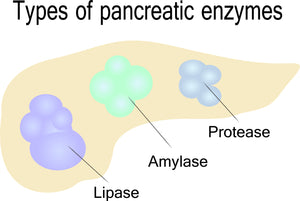

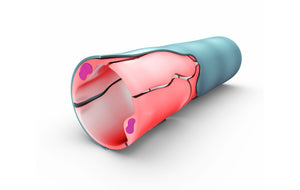
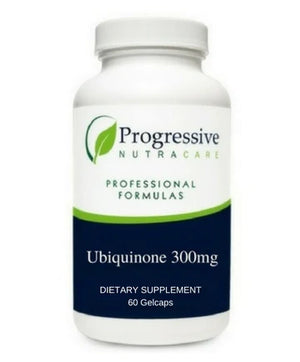

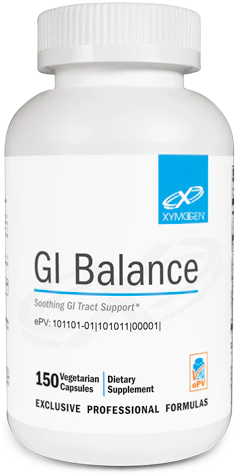
Comments 1
Anonymous
Great Article and well written.